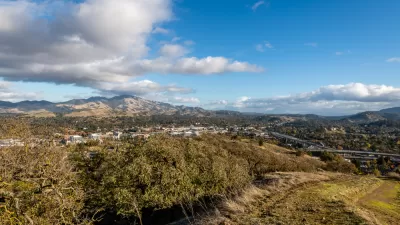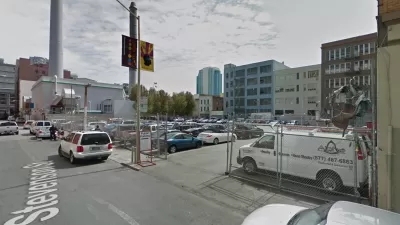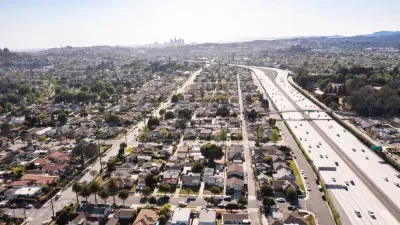Long, onerous environmental review processes focused on public input can cause major delays and cost increases for infrastructure and transportation projects.

Pointing to New York City's congestion pricing project as an example of a proposal delayed by community engagement, Jake Blumgart describes the pitfalls of drawn-out environmental review processes that can delay or kill infrastructure projects. "Everything from individual housing projects to bike lanes to major new infrastructure like subway lines is subject to rigorous community engagement programs."
"You might say it's good to be careful about public policies," says Katherine Levine Einstein, professor of political science at Boston University. "The problem is when we delay things, we make them super expensive and it has real environmental consequences." Einstein and her colleagues "conducted research around participation in community meetings about housing and zoning" in the Boston metropolitan area. They found that participants "were more likely to be white, even in areas with small white populations, and they were even more likely to be older than the average resident and far more likely to be homeowners." According to Einstein, "meetings about infrastructure and transportation projects are likely to have similarly distorted results as those about housing and zoning."
To Einstein, outdated environmental review requirements "don’t take into account the overwhelming urgency of addressing climate change and the huge role that a car-centric development and policy have played in warming the planet." Designed to evaluate the impacts of projects to protect the environment and public health, "California’s Environmental Quality Act," for example, "has been weaponized by white homeowners to delay neighboring development to death."
While "innovations in public outreach during the pandemic may have reshaped some of the inequities of public engagement," according to Einstein's research, "Zoom and webinars have not changed who attends public meetings, at least in the case of Boston metropolitan area zoning meetings." Meanwhile, due to the 16-month environmental review process for New York's congestion pricing, badly needed funds for transit upgrades won't start flowing until 2023.
"There is not an easy answer to the question of how to balance community input against the cost of delay, especially as the need to fight climate change becomes ever more imperative." Einstein recommends reforms that could make public meetings more efficient without sacrificing community input, "such as focus groups for only renters or transit-dependent people" and increased accountability for local politicians. But Einstein isn't optimistic. "[F]undamentally, by their structure, public meetings will always attract an unrepresentative group of people with intense preferences."
FULL STORY: Cities Struggle With the Dark Side of Community Engagement

Alabama: Trump Terminates Settlements for Black Communities Harmed By Raw Sewage
Trump deemed the landmark civil rights agreement “illegal DEI and environmental justice policy.”

Planetizen Federal Action Tracker
A weekly monitor of how Trump’s orders and actions are impacting planners and planning in America.

The 120 Year Old Tiny Home Villages That Sheltered San Francisco’s Earthquake Refugees
More than a century ago, San Francisco mobilized to house thousands of residents displaced by the 1906 earthquake. Could their strategy offer a model for the present?

In Both Crashes and Crime, Public Transportation is Far Safer than Driving
Contrary to popular assumptions, public transportation has far lower crash and crime rates than automobile travel. For safer communities, improve and encourage transit travel.

Report: Zoning Reforms Should Complement Nashville’s Ambitious Transit Plan
Without reform, restrictive zoning codes will limit the impact of the city’s planned transit expansion and could exclude some of the residents who depend on transit the most.

Judge Orders Release of Frozen IRA, IIJA Funding
The decision is a victory for environmental groups who charged that freezing funds for critical infrastructure and disaster response programs caused “real and irreparable harm” to communities.
Urban Design for Planners 1: Software Tools
This six-course series explores essential urban design concepts using open source software and equips planners with the tools they need to participate fully in the urban design process.
Planning for Universal Design
Learn the tools for implementing Universal Design in planning regulations.
Clanton & Associates, Inc.
Jessamine County Fiscal Court
Institute for Housing and Urban Development Studies (IHS)
City of Grandview
Harvard GSD Executive Education
Toledo-Lucas County Plan Commissions
Salt Lake City
NYU Wagner Graduate School of Public Service





























